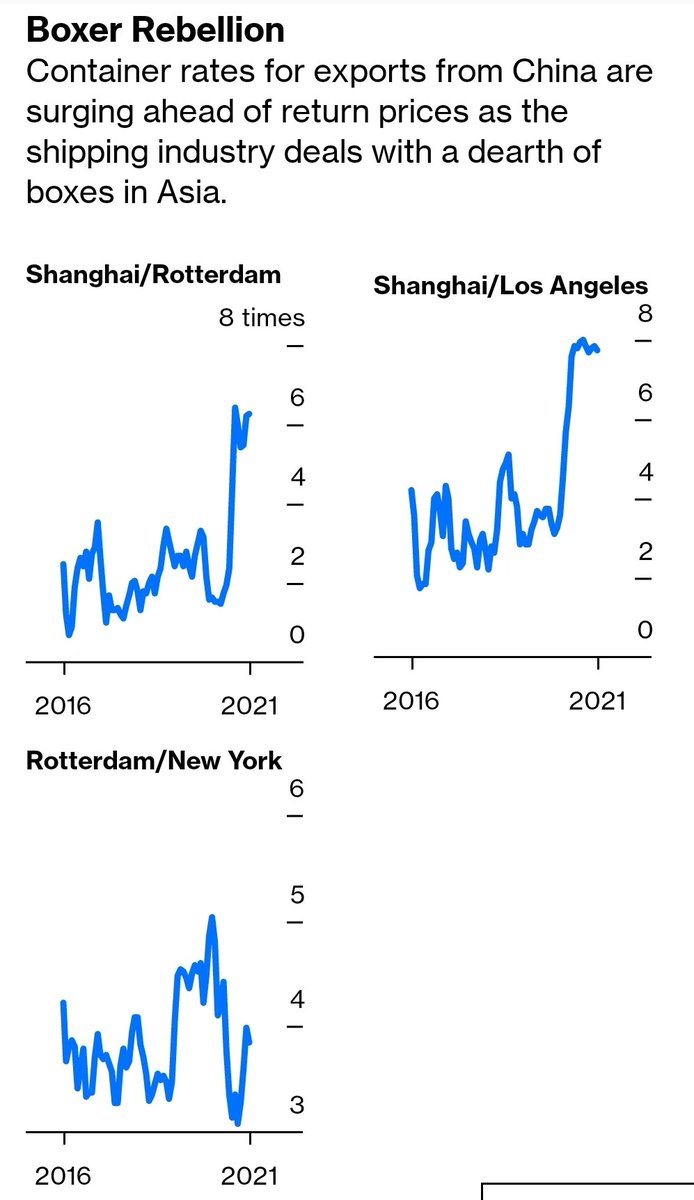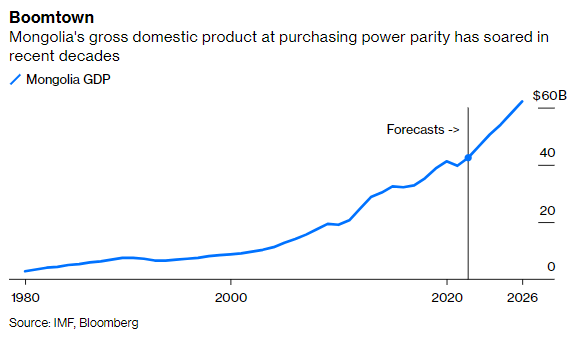
High costs and disruptions in the shipping industry aren't likely to vanish quickly as the pandemic fades:
bloomberg.com/opinion/articl…
bloomberg.com/opinion/articl…
The immediate problem is that shipping containers are in the wrong place, piling up in North America and Europe because hard-pressed vessels have been returning to port empty so as to save time.
This shows up in the differential container rates for outbound and return voyages:
This shows up in the differential container rates for outbound and return voyages:

That price dislocation is a good thing, giving container lines a strong economic incentive to move boxes to where they're most needed.
Compare the price gap that's opened up on ex-China routes to the stability of the transatlantic passage on that chart:
Compare the price gap that's opened up on ex-China routes to the stability of the transatlantic passage on that chart:

That should correct itself by early next year. Empty containers are streaming out of the Port of Los Angeles at nearly double normal rates, responding to those price signals.
The problem comes after that.
The problem comes after that.
The pandemic has been so all-consuming that it's easy to forget that the trade recession didn't start when Covid hit Wuhan, but nearly 18 months earlier with Donald Trump's trade war in late 2018: 

As that chart shows, though, volumes are now booming, seemingly back towards the pre-Trump trend.
It's *possible* that this is a temporary effect. People bought a lot more durable goods during the pandemic because they couldn't spend money on services like going out.
It's *possible* that this is a temporary effect. People bought a lot more durable goods during the pandemic because they couldn't spend money on services like going out.
So perhaps trade will settle down to something more like the 2009-2019 growth rate once people can go to pubs, restaurants and live events again in the way they could up till last year.
If not, though, we have a problem.
If not, though, we have a problem.
The shipping industry has cut back on investment in recent years, matching the slowdown in trade volumes.
Capex since March 2019 by Maersk, the world's biggest container line, has been barely more than it spent in a *single quarter* of 2014:
Capex since March 2019 by Maersk, the world's biggest container line, has been barely more than it spent in a *single quarter* of 2014:

That means capacity is tight and is likely to remain so for several years, until the world has built enough ships, docks, and loading cranes to make up for the current shortage. (ends)
• • •
Missing some Tweet in this thread? You can try to
force a refresh







